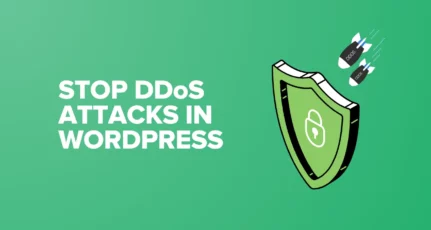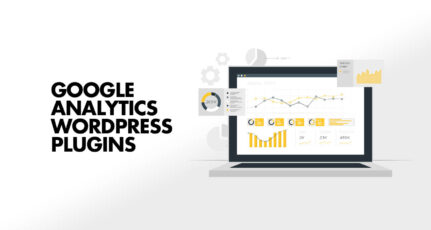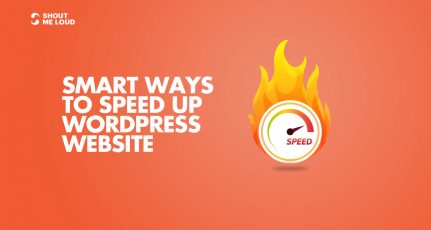
By default, WordPress gives you two different ways to create content – posts and pages.
To make your site more user-friendly, it’s important that you properly use posts and pages when you add new content.
But when you’re just getting started, it can be difficult to know when you should use a post and when you should use a page.
To help you understand which one is right for each piece of content, I’m going to cover the difference between WordPress posts vs pages in detail in this post.
You’ll learn:
- The biggest thing that determines when you should use posts and when you should use pages
- Some more specific differences between posts vs pages to deepen your knowledge
WordPress Blog Posts vs Pages: The Difference In A Nutshell
Here’s the big difference between WordPress posts and pages:
WordPress posts have an official publish date and are displayed by date on your site’s blog page.
If you want to write a normal blog post, you should use a post. For example, the content you’re reading right now is published as a WordPress post (if you look at the top of this page, you can see the publish date).
WordPress pages do not have a publish date and are meant for static, timeless content. Two common examples of content that should be a page are your site’s “Contact” or “About” pages.
It doesn’t make sense to list that content by date because you want people to always be able to see it, no matter when they visit your site.
If you want to see an example of a WordPress page – look at ShoutMeLoud’s About page. Notice how there’s no publish date?
At a high level, that’s the most important difference:
- WordPress posts are for timely blog posts and have a publish date
- WordPress pages are for timeless static content and don’t have a publish date
But there are also some other smaller differences between the two. Let’s cover those next…
4 More Technical Differences Between WordPress Posts vs Pages
You already know that posts have a publish date, whereas pages don’t. But there are some other notable differences that can have an effect on how you structure your site.
1. You Can Categorize Posts, But Pages Are Hierarchical
When you create a WordPress post, you have the option to assign it:
- Categories
- Tags

Categories and tags help you organize your posts and make it easier for readers to find the content they’re interested in.
Each category and tag archive page lists all the blog posts that fit that category or tag by their publish date.
For an example, look at the WordPress category on ShoutMeLoud. Rather than listing every single ShoutMeLoud blog post, It just lists the latest posts that have been assigned the “WordPress’ category.
Pages, on the other hand, cannot use categories or tags. Instead, they’re organized hierarchically. That’s a big word – but here’s all it means:
You can make one page a “parent” and another page a “child”. This helps you to group related pages together:

Making one page a child of a parent page mainly affects its URL permalink structure.
For example, if the parent page is located at “yoursite.com/parent”, the child page would have a URL of “yoursite.com/parent/child”.
You can see an example of this on the ShoutMeLoud Disclaimer page. If you look at its URL, you’ll that it’s a child of the About page.
2. Posts Usually Have A Public Author, But Pages Don’t
In your back-end WordPress dashboard, you’ll see an author for both posts and pages. But on the public part of your site, most themes only show an author for posts.
You can see this on ShoutMeLoud next to the publish date:

Users can also click on the post author to browse a list of all that author’s posts.
Pages, on the other hand, don’t list a public author. Again, you can see this on the ShoutMeLoud About page.
3. Posts Display In Your RSS Feed, But Pages Don’t
Your site’s RSS feed lets readers subscribe to your content using something called an RSS reader. For an example, you can find ShoutMeLoud’s RSS feed here (though you need an RSS reader to turn that feed into a human-friendly format).
Your RSS feed only shows your site’s latest posts. It does not include pages.
This makes sense because an RSS feed helps readers subscribe to your latest content. And as you learned above, posts are for timely content, while pages are for static, timeless content.
Must read:
How to create the RSS feed for WordPress blog using Feedburner by Google
Note: I use Feedly to subscribe to blog’s RSS feeds. You should also use Feedly it’s pretty solid and available for all the platforms. You can browse ShoutMeLoud feed on Feedly here.
4. Posts Have Custom “Formats”, But Pages Only Sometimes Have Templates
Since WordPress version 3.1, posts have a feature called Post Formats. Essentially, these make it easy to style your post differently depending on the type of content. Usually, you’ll have formats for things like:
- Image
- Video
- Quote
- Gallery
- Etc.

Pages do not have these formats. But some themes will include Page Templates that let you apply different layouts to different pages. This feature is not as common as post formats, though.
Common FAQs About WordPress Posts vs Pages
Is There A Limit On How Many Posts Or Pages You Can Create?
No! You can create as many pages and posts as you want.
In older versions of WordPress, using more than 100 pages caused performance issues, so you still might see references to this limit. But as of WordPress version 4.2, this issue has been completely fixed and you can now create as many pages as you want.
Are Posts And Pages The Only Content You Can Create With WordPress?
No! While WordPress originally only had posts and pages, it’s now possible to create your own types of content using something called custom post types.
If you’re not a developer, you’ll probably never use your own custom post types. But many popular WordPress plugins will add their own custom post types for you.
For example, if you use an event calendar plugin, it will create an Event custom post type. Or, if you’re building a real estate website, the plugin might include a custom post type for your house listings.
You can even find plugins that help you create your own custom post types.
This Is All You Need To Know about WordPress pages & Posts
In this post, I listed out a variety of technical difference between posts and pages. But for most bloggers, all you need to remember is this:
- Posts are for timely content. They have a publish date and are displayed in reverse chronological order on your blog page. They’re what you should think of when you hear the term “blog post”.
- Pages are for static, timeless content. They do not have a publish date. They’re good for content like your “About” or “Contact” pages.
Do you have any other questions about WordPress posts and pages? Leave a comment, and I’ll try to help you!
Here are a few hand-picked guides for you to read next:
- Decoding 3 Best Solutions For Interlinking Blog Posts In WordPress
- How To Show Last Modified Date On Blog Post Instead Of Published Date in WordPress
- The 11 Best Examples of A Great About Page and Why They’re Great
- How To Noindex WordPress Categories and Tags






Hi Harsh. Very useful article about post/page differences in WordPress, thank you.
I basically knew all this stuff but a refresher is never a waste of time. I’d just like to add for your readers that pages are more valuable when it comes to link equity. Because every post automatically links to them through the nav bar. And this means they are strong and great for some strategic internal link building (strategic means keyword rich).
Food for thought, that’s all. Thank you for your hard work Harsh, keep it up.
Hi Harsh,
Very Helpful Article. I had always been confused between WordPress Pages and Posts, mainly about why RSS feed does not include pages?
@Ashak
RSS doesn’t include pages by default, but you can add pages or custom post type in RSS using custom functions. I will share a post about it in the coming days.
Hi Harish, I’m having a major doubt in word press while doing ON-Page in WordPress. For a single post how many keywords can be added & also how many keywords are being set as focus keyword?
Hello and thanks for the great site. I’ve been running some WP sites for a few years and I always come to WPBeginner for quality and concise information.
The sites I’ve built have been fine with static pages but one client (my wife) wants to add a blog to her martial arts site.
How do we make something that looks like the blog page on this site?
I understand how to create the post, and can add it to a menu, but do not know how to make a page with the chronological list of posts.
Is this a feature of the specific theme? I am using Genesis and Responsive.
Thanks again, I’m sure there’s an obvious solution that I’m overlooking.
Very Helpful Article !! Thank You Sir !!
I had always been confused between WordPress Pages and Posts, mainly about why RSS feed does not include pages. But after reading this article, my all doubts are cleared.
Very informative article and clearly presented information, thank you.
Cleared up some confusion for me particularly that pages can be used in a hierarchical fashion and tend to be more static whereas posts are date and time sensitive and are organized by categories and tags.
When I’m thinking static I always write and publish a page Harsh. But if I want to create evergreen yet more dynamic, timely content designed to help my readers learn blogging, I go with the post every time. Posts are the backbone of my blog but I also see pages as important for transparency, credibility and also for boosting sales, via my eBook and courses pages.
Sir, i have some basic questions about tag. How many tag can i use in i single blog post.
I watched your interview with amit mishra it’s amazing.
@Sayan
this will help you: https://www.shoutmeloud.com/how-to-organize-wordpress-tags.html